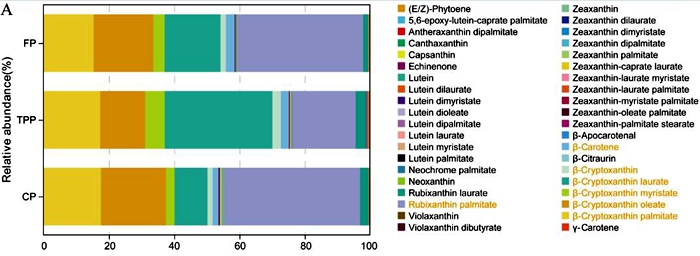Integrated ESI−MS/MS and APCI−MS/MS based metabolomics reveal the effects of canning and storage on peach fruits
Recently, a study on the chemical composition of peach fruits before and after canning and storage was reported. This research has been published in the journal of 《Food Chemistry》.
Canned food represents an astonishingly innovative technology that still widely influences people's lifestyles. As early as two centuries ago, canned fruits became one of the main types of canned food, which is typically less expensive than both fresh and frozen produce and often have similar nutritional value. According to CCFIA (China Canned Food Industry Association, http://www.topcanchina.com/) statistics, China has been the largest producer and exporter of canned fruits in the world, with canned peaches exporting 137.4 kilotons, accounting for 29% of total canned fruit exports. However, whether canned peaches can deliver nutrient levels comparable to those of fresh peaches has been a concern to consumers.The characterization of peach metabolites and carotenoids during canning and storage remains unclear.
Present study identified 658 metabolites and 40 carotenoids in peach fruits throughout the canning and storage using ESI-MS/MS and APCI-MS/MS based metabolome approach. A total of 282 differentially accumulated metabolites were found, mainly including 78 phenolic acids, 74 lipids, 61 flavonoids. Five esterified carotenoids (rubixanthin palmitate, β-cryptoxanthin oleate, β-cryptoxanthin laurate, β-cryptoxanthin palmitate, and β-cryptoxanthin myristate) were the main peach carotenoids, with a proportion of approximately 90%, while free carotenoids accounted for 4.22–5.95% during the entire processing period. Moreover, the total carotenoid loss rates for canning and storage were 56.67% and 46.55%, respectively. Compared to the loss of free carotenoids, esterified carotenoids were more stable during storage, while canning led to a greater loss of esterified carotenoids. The results provided new insights into the maintenance of health-related phytochemicals from canning processes.
This project was supported by grants from China Agriculture Research System (CARS-30-1-04), the Agricultural Science and Technology Innovation Program (CAAS-ASTIP-2022-ZFRI-01), the National Natural Science Foundation of China (32102328).
https://doi.org/10.1016/j.foodchem.2023.137087

By Wu Jinlong
wujinlong@caas.cn
-
 Apr 18, 2024Opening Ceremony of the Training Workshop on Wheat Head Scab Resistance Breeding and Pest Control in Africa Held in CAAS
Apr 18, 2024Opening Ceremony of the Training Workshop on Wheat Head Scab Resistance Breeding and Pest Control in Africa Held in CAAS -
 Apr 03, 2024IPPCAAS Co-organized the Training Workshop on Management and Application of Biopesticides in Nepal
Apr 03, 2024IPPCAAS Co-organized the Training Workshop on Management and Application of Biopesticides in Nepal -
 Mar 28, 2024Delegation from the School of Agriculture and Food Science of University College Dublin, Ireland Visit to IAS, CAAS
Mar 28, 2024Delegation from the School of Agriculture and Food Science of University College Dublin, Ireland Visit to IAS, CAAS -
 Mar 25, 2024Director of World Food Prize Foundation visited GSCAAS
Mar 25, 2024Director of World Food Prize Foundation visited GSCAAS -
 Mar 20, 2024Institute of Crop Sciences (ICS) and Syngenta Group Global Seeds Advance Collaborative Research in the Seed Industry
Mar 20, 2024Institute of Crop Sciences (ICS) and Syngenta Group Global Seeds Advance Collaborative Research in the Seed Industry
